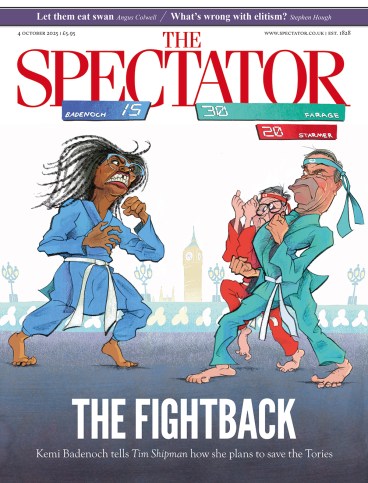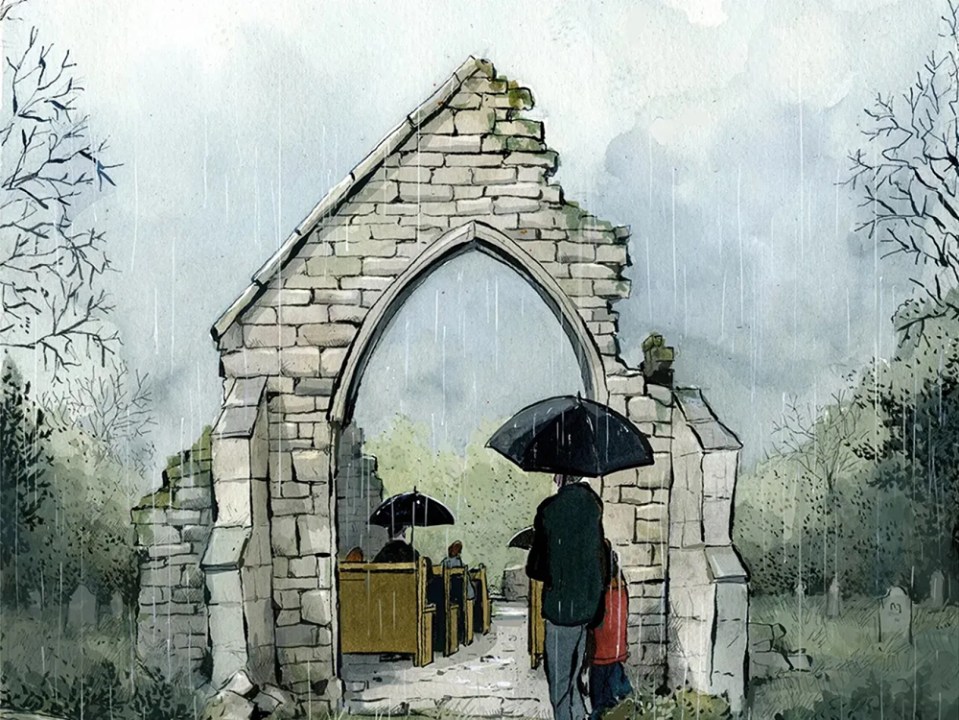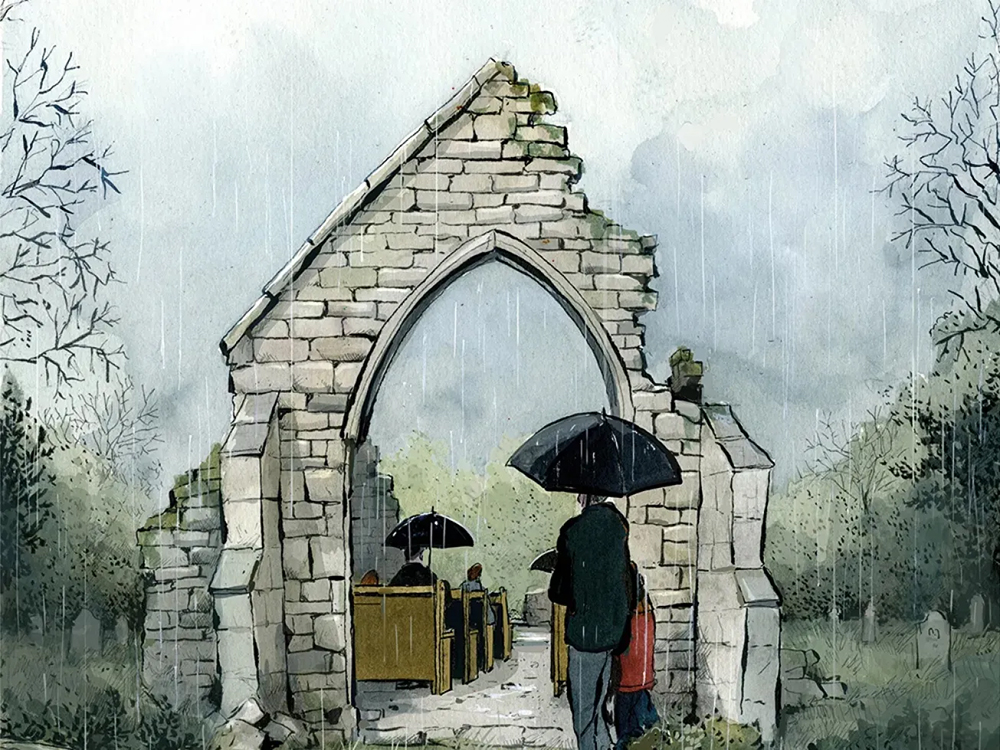
Moscow mule
Sir: While visiting Russia, James Delingpole learned from the patriarchate’s press officer that under communism the Russian Church wasn’t allowed to exist (‘Letter from Moscow’, 27 September). However, that doesn’t accord with my own experience of being in the USSR during the Brezhnev era. As a student, I visited the 14th-century Zagorsk monastery complex just outside Moscow one Sunday and was spellbound by the heavenly chant of the Orthodox liturgy which lifted my soul. The church was full of babushkas as well as younger believers crossing themselves and kissing the icons.
For all his faults and human-rights violations, Brezhnev, unlike Vladimir Putin, had not been indicted by the International Criminal Court for war crimes. Nor had he honoured commanders responsible for war crimes. Ukraine has indicted 13 Russian officers for war crimes in Bucha, where 600 civilians were murdered in cold blood. Perhaps this explains the ‘western media’s relentlessly negative take on Russia’, a fact Mr Delingpole could have put to the press officer. Or was he afraid of being ‘bumped off by the FSB’?
Peter Shutak
Fleet, Hants
Cop out
Sir: In your leading article (‘Mahmood’s moment’, 27 September) you correctly bemoan the tendency of chief constables to hide behind operational independence in preference to focusing on the public’s priorities. In 2012 the previous government introduced an innovation that should have addressed this problem. Directly elected Police and Crime Commissioners (PCCs) were meant to ensure that the doctrine of policing by the consent of the public was democratically strengthened. The reality is they have proved to be largely anonymous and ineffectual. Even the Prime Minister and home secretaries have been moved to remind the police what their priorities should be – a primary function for PCCs, who appear to have nothing to say on the subject. Reviews and upheavals are expensive, but surely the time has come to acknowledge that the model is not working.
Ron Ball, Warwickshire Police and Crime Commissioner 2012-16
Solihull, West Midlands
Fighting spirit
Sir: Rod Liddle (‘Let’s just ignore the Church of England’, 27 September) will encounter no difficulty in persuading most of us that the advice of C of E bishops about Tommy Robinson is wholly surplus to requirements. I must, however, part company with the headline suggesting that right-thinking people should ‘ignore’ the Church entirely. On the contrary, it is the withdrawal of such people from the C of E’s political system which has left it in the muddled state that Mr Liddle eloquently describes.
Please advise your readers to populate Deanery, Diocesan and General Synods urgently, if they have the slightest desire to Make The Church of England Great Again. Otherwise, the returns on
£17 billion of investments may be spent in ways which leave them less than gruntled. Your readers’ re-engagement with Church democracy could also help to ensure the Church concentrates on its day job. That is, spiritual care and working to assist the needy, Christians or otherwise, in the parishes which the churches were built to serve.
To that end, we need more and better paid vicars. This could be funded from some of the returns on the £17 billion, rather than wasting huge sums on administrators and what Mr Liddle might call silly projects. If the next Archbishop of Canterbury were to oversee such change, the Church might not be ignored but embraced.
Emma Robarts
Buntingford, Herts
Exploring psychedelics
Sir: The use of psychedelic therapy for veterans with post-traumatic stress disorder, so eloquently highlighted by General Sir Nick Carter, should be applauded (‘Agony and ecstasy’, 20 September). However, it is not only veterans suffering from PTSD who could benefit, but potentially thousands who have major mental illness. The scandalous lack of progress in developing transformative psychiatric medicines has left doctors with few weapons in their armoury to treat conditions including depression, bipolar disorder, anxiety and OCD.
We hear daily from families and people, not necessarily physically wounded but carrying deep-rooted scars from long-term, often undertreated mental anguish, who are crying out for new treatments and therapies.
At the Prince of Wales International Centre for SANE Research (POWIC), our research centre in Oxford, we host clinical trials on the use of esketamine for treatment-resistant depression and cannabidiol for acute schizophrenia, as well as other innovative medications and therapeutic interventions.
Decision-makers are duty-bound to protect the lives of the population they serve. This must include enabling a resurgence of enthusiasm and encouragement for those able to develop alternative and more effective treatments, so patients will not need to rely on drugs made available more than 60 years ago.
Marjorie Wallace
Chief Executive, SANE
London N7
Toil and trouble
Sir: Theodore Dalrymple imagines several Shakespearean characters undergoing different forms of psychology (‘Freudian slip’, 27 September). Might I suggest the inclusion of Macbeth, who, with his tendency to imagine unreal objects floating before him, would be a prime candidate for treatment, though whether for neural similarity or maladaptive daydreaming I am not qualified to say.
Tom Stubbs
Surbiton, Surrey
Write to us The Spectator, 22 Old Queen Street, London SW1H 9HP; letters@spectator.co.uk








Comments